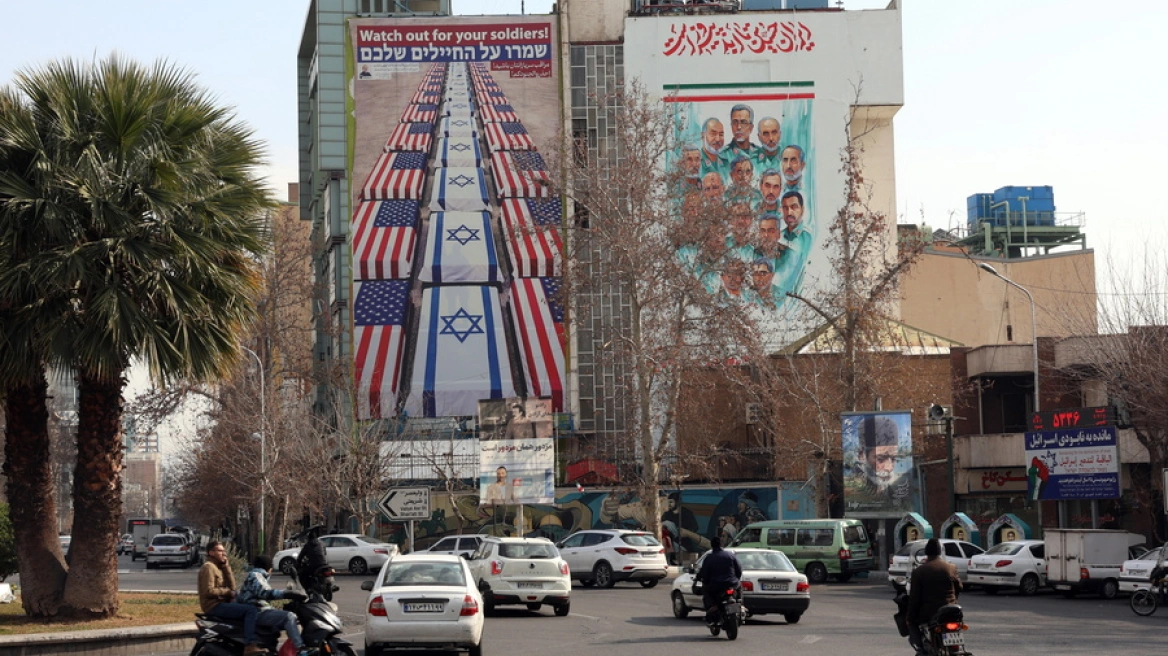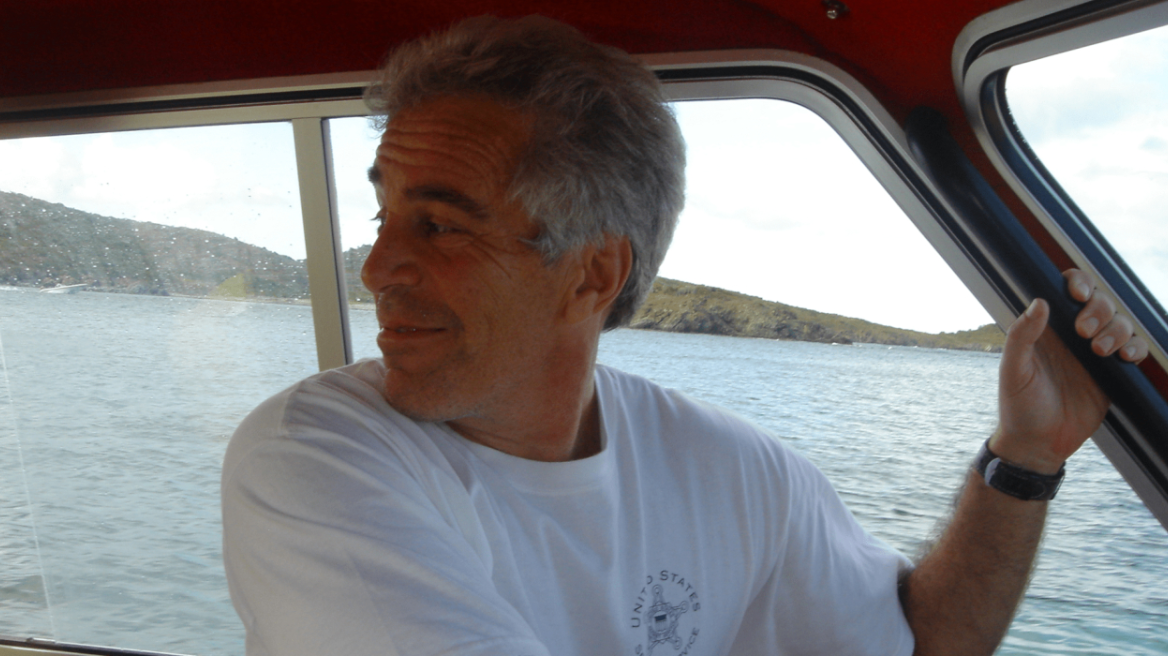Should your quest delve into the foundational complexities of contemporary Greece, a discussion with Stathis Kalivas is imperative. A persona embodying the essence of a “Think Tank,” revered as both a Professor at Yale and Oxford and a prolific author harboring multitudes of sorrows. Serving as a beacon of intellectual acumen and a catalyst for transformative change, he breathes life into abstract concepts, transmuting from mere theory to tangible reality.

In his presence, notions like cosmogony, groundbreaking innovations, contradictions, and radical transformations manifest into corporeal existence. Our interaction unfolds in utmost confidentiality – an interplay featuring solely myself, the conduit of communication, along with the recording apparatus. A discourse steeped in contemplation, probing into the quintessence of matters both essential and subversive.
Kalivas Danikas Act 1: The Musings of Nikos Karaflos
Dimitris Danikas: elaborate on “Rixikeleuthos.”
Stathis Kalyvas: “Rixikeleuthos” signifies a trilogy of events (the inaugural session transpired last January, followed by the second iteration on 5/31). Presented with an opportunity by the Concert Hall, I sought to innovate and chart uncharted territories.
DD: What does innovation encapsulate?
SK: Innovation embodies novelty and paving new pathways, marking a departure from convention. Hence, the selection of “Rexikeleuthos,” symbolizes the rupture of the trodden path in pursuit of groundbreaking advancements – a concept synonymous with “path-breaking” in English parlance.

DD: What vistas shall this event unveil?
SK: The notion of innovation typically conjures digital advancements and entrepreneurial ventures renowned for accruing wealth. However, my vision veers in a distinct direction – exploring the innovation landscape across art, science, and entrepreneurship. Art, in particular, thrives on innovation, translating novel ideas into tangible creations. Exploration of Beauty Through Aesthetic Narratives
DD: Is beauty a subjective or objective construct?
SK: Delving into the discourse surrounding beauty unravels a multifaceted debate intersecting philosophy and social constructs. The perception of beauty as subjective or objective is nuanced, tethered to societal norms and individual preferences – a profound inquiry encompassing the essence of aesthetics and human attraction to beauty.

Kalivas Danikas Scene 2: The Enigmatic Tree of Prosperity
D.D.: Transitioning to the documentary encapsulating post-colonial reflections, shed light on this endeavor.
SK: Set to air on ERT during the autumn commemorating the 50th anniversary of the post-colonial era, the documentary unfolds across five episodes, each encapsulating a decade of historical narrative. The narrative encapsulates political upheavals, societal transformations, and cultural paradigms, unmasking the societal ethos of yesteryears. Unveiling the essence of societal values, evolutions in fashion, and shifting cultural landscapes, probing into realms often overlooked by conventional social science studies.
Mitsotakis: At the Belharra shipyards today and then in Normandy for D-Day with Macron and Biden

DD: A melange or a meticulously crafted narrative?
SK: A nuanced narrative intertwining historical events with societal vicissitudes post-colonization, aiming to rediscover ideas essential for societal coherence – a testament to the enduring impact of historical narratives on contemporary societal fabrics.
Act 3: The Triumph of Greece Lays in its Alignment with the Occident
DD: Your perspective on the current state of affairs in the Western world?
SK: Presently, a profound crisis engulfs the Western paradigm, warranting paramount consideration. The cornerstone of Greece’s success post-independence stemmed from its harmony with the West. An overarching reason for the nation’s prosperity lay in the pivotal decisions embracing Western ideologies during critical junctures. At present, the Western sphere faces intense scrutiny, with Europe grappling with a crisis of identity, struggling to contend economically with both the United States and the emergent superpowers of Asia, notably China and India. Furthermore, a discernible moral conundrum permeates the milieu – an entrenched culture of guilt dominates Western thought. This introspective notion, preoccupied with self-criticism for historical misdeeds, has led to an identity crisis, diluting the fundamental essence of pride and forging a discord between aspirations and reality, heralding a potential impasse.

DD: How does this landscape impact Greece?
SK: Grappling with a tendency to emulate Western constructs without requisite discernment, Greece finds itself treading uncharted territory. Paradoxically, the prevalent laxity coupled with post-colonial sentiments engenders a safeguard, deterring an absolute replication of Western paradigms.
D.D.: Has the delineation between Right, Left, and Center ideologies dissolved in contemporary discourse?
SK: While a palpable shift indeed permeates societal ethos, blurring the traditional political demarcations, this transformation is not unique to the Western sphere. This paradigm shift mirrors the societal pursuit of existential meaning, intensifying amidst an extended life expectancy. The vacuum of meaning prompts introspection into life’s essence, a quest necessitating a quest for fulfillment beyond religious dogma. This existential quest probes into facets such as individual happiness, gender identity struggles, and the pursuit of equilibrium – as advocated by Aristotle in the Nicomachean Ethics, underscoring the construct of balance and moderation essential for human flourishing.
DD: The proliferation of depression has assumed pandemic proportions.
SK: The pervasive sense of dissatisfaction pervading contemporary youth signifies a paradoxical conundrum – an insatiable discontent embodied by a pervasive discontentment. This pervasive malaise cascades into increased reliance on pharmaceutical interventions, emblematic of a profound void that defies facile remedies.

Act 4: Navigating the Mental Health Epidemic Amongst Oxford Scholars
DD: Reflecting on your engagement with Oxford University, how do you navigate the mental health crisis among students?
SK: Post-pandemic upheavals have precipitated a mental health epidemic amongst the collegiate cohort. A surge in depression rates and identity crises underscore the need for robust support structures to address the multifaceted challenges plaguing young minds. The manifestation of various ailments and gender identity conflicts underscores an urgent need for proactive intervention to foster holistic well-being.
DD: Are orientation challenges pervasive among students?
SK: Widespread instances of disorientation underscore the necessity to foster interactive discourse akin to Socratic pedagogy, facilitating profound intellectual exploration. Investment in nurturing the forthcoming generation demands a paradigm shift in prioritizing educational professionals, underscoring the pivotal role educators play in shaping young minds.

Act 5: Aspiring Towards a Cosmopolitan Greece
DD: Your reflections on the prevailing political landscape in Greece today?
SK: We are mandated to sprint at full throttle yet find ourselves faltering at a suboptimal pace.
DD: Whither should our strides be directed?
SK: A transformative discourse beckons to overhaul archaic structures and foster progressive ideologies, instigating a renaissance conducive to modernized institutions and cognitive paradigms. In an era marked by swift metamorphosis, Greece must endeavor to bridge the existing chasm and forge ahead with alacrity to redress prevalent lags.
DD: How should one navigate the labyrinth of statecraft and public administration?
SK: While commendable strides have been made in the sphere of digitization, governmental mechanisms face a palpable deficiency. As we introspect on crucial matters such as environmental preservation and tourism, we confront a pivotal juncture – what blueprint do we envision for our nation’s future? Do we aspire to transform into a transient hub perpetually engulfed in revelry, leaving behind a wake of debris for subsequent generations to grapple with? Is our vision one of sustainable growth and legacy-building, fostering a heritage steeped in reverence and safeguarding our distinct identity? The former may ensure fleeting financial prosperity, while the latter guarantees the longevity of our collective heritage, steering clear of an irreversible descent into desolation.
Scene 6: The Dichotomy of Kasselakis – Androulakis
DD: Contemplate the prevailing disparities between Kasselakis and Androulakis, with SYRIZA leading the polls over PASOK.
SK: Kasselakis dominates the public sphere, his omnipresent allure leaving a lasting impression on the populace. The veneer of opulence and youthfulness epitomized by his persona captivates a niche minority. Conversely, Androulakis’ inconspicuous profile fails to captivate the public imagination, emanating a veneer of antiquity and lackluster novelty.
DD: A conjecture you had previously shared predicts Kasselakis would ignite a fire within himself.
SK: Indeed, I maintain that such a fate looms over him, bespeaking a fundamental lack of fortitude. Should my prognosis falter, this envisaged crisis would be a cataclysm, signifying a regression for our nation. A narrative where history repeats itself, hinting at an unheeded societal evolution.
DD: How would you categorize Kasselakis ideologically?
SK: Beneath his veneer lies a paradox – his identity transcends the conventional Left-Right dichotomy, shunning political affiliations and tethering itself to a broader perspective. Noteworthy is the irony that his stance, though divergent, often yields more pragmatic outcomes than traditional ideologies – a poignant tragedy.
DD: Elaborate on this sentiment.
SK: Political luminaries are tasked with perceiving nuances oft overlooked. Kasselakis’ experiential repository from traversing diverse arenas endows him with a unique vantage, potentially transformative if anchored in substantive discourse. This exemplifies the transformative narrative akin to Karamanlis’s deliberations in France, instilling cosmogonic philosophies that spurred paradigm shifts during the Post-Civilization era, underscoring the interconnectivity of historical narratives.
DD: Reflecting on current fractures, have the demarcations between the Center, Right, and Left blurred?
SK: The intrinsic human proclivity towards collective identity resonates in the delineation between Panathinaikos and Olympiacos – societal groupings lay the bedrock of identity constructs. The semantic labels assigned to these groups may evolve, yet the essence of association persists.
DD: Is Mitsotakis aligned with conservative ideologies?
SK: Mitsotakis embodies a centrist ethos, striving to synthesise facets from both spectrums – a progressive narrative steeped in an amalgamation of divergent ideologies.
DD: Kasselakis’ ideological amalgam transcends conventional paradigms.
SK: This fluidity underscores an enduring quest for individual niches, synchronized through mutual alignment on select paradigms whilst bridging ideological disparities.
DD: In your assessment, do these ideological fractures endure?
SK: Fundamentally, dichotomous debates persist, delineating paths where priorities veer between production and redistribution. As overarching ideologies intersect, proponents remain polarized, defining divergent pathways that impact collective decision-making.
DD: Can these priorities be concurrently addressed?
SK: The dichotomy between production and redistribution necessitates nuanced navigation, occasionally impeding seamless integration of these diametrically opposed imperatives.
Epilogue: A Call for Paradigm-Shifting Resolutions
DD: As our conversation drew to a close, and I expressed my gratitude for his insights, Kalyvas delved into the ramifications of climate change.
SK: Amidst the impending environmental crisis, we are confronted with a profound question: how shall we adapt to this transformed landscape? What societal structures will emerge in this new era? While we grapple with concerns over population explosions, particularly in Africa, a closer examination reveals that the global population is rapidly approaching a tipping point within the next few decades, where the demographic pyramid will begin to invert. This signifies a decline in birth rates, even as the overall population remains stable. The phenomenon we witness in Europe is not exclusive to the West; it is a hallmark of developed nations. With few exceptions, affluence correlates with a decrease in fertility rates. A defining characteristic of demographic studies is the irreversibility of population decline once it commences. We lack historical precedents of such a reversal. Consequently, what unfolds in this scenario? We observe this phenomenon in China, where the one-child policy has left an enduring legacy. Despite the recent relaxation of this policy, families remain reluctant to expand their brood beyond two or three children. The inevitable consequence is a dwindling youth population, ushering in a cascade of new challenges. This trajectory leads us into the realm of Aldous Huxley’s “Brave New World” and comparable dystopian narratives.
Ask me anything
Explore related questions





